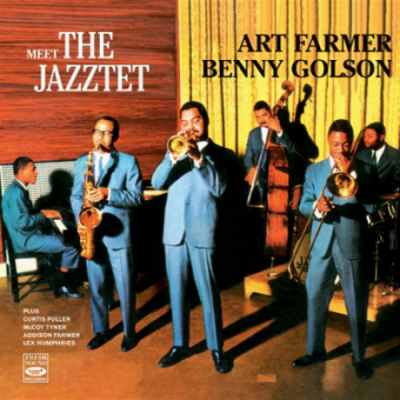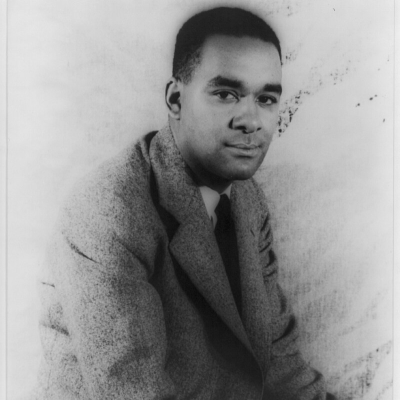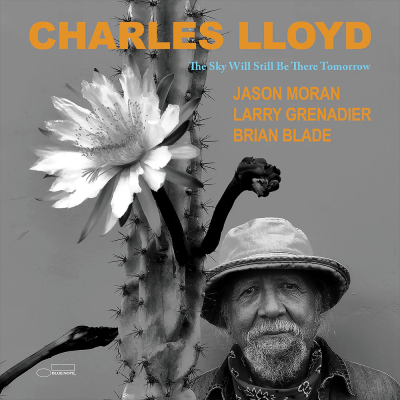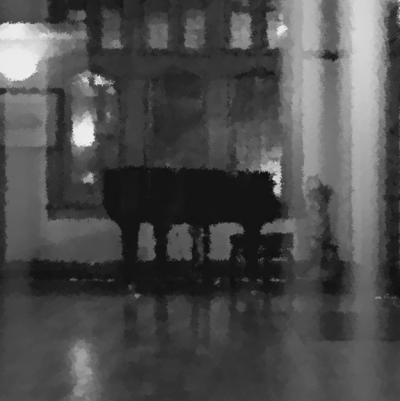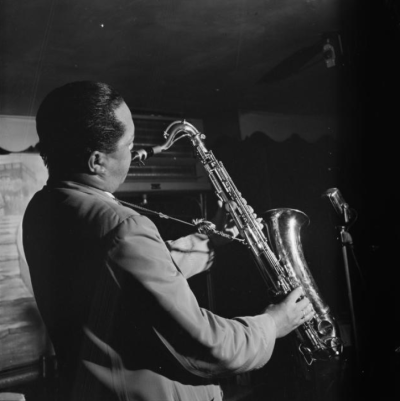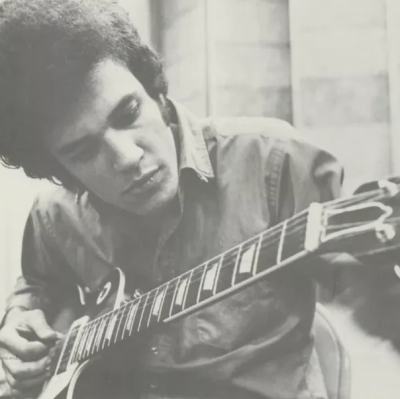.
.
“Before the Sky Was Blue,” a story by J. Lee Strickland, was a finalist in our recently concluded 50th Short Fiction Contest. It is published with the permission of the author.
.
.
.
Before the Sky Was Blue
by
J. Lee Strickland
.
.
___
.
…..It is tempting to say that this story took place a long time ago, but that would not be accurate. The place where this story unfolds did not suffer Time as we know it—the linear time of beginnings and endings, of what once was, of what might never be.
…..In that place, each day was like every other—days of sun, days of rain, calm days, and days when the wind blew and the trees of the forest danced. The seasons slid seamlessly one into another, more places than times—Winter, a place where the fishes gathered; Spring, a place of flowers; Summer, a place to dig savory white roots from the soil, and Fall, a place where ripe fruit hung so low, in such abundance, that one picked one’s fill sitting on the ground without moving.
…..What time there was, was cyclical—the cycles of the sun, moon and stars, the dependable alternation of light and dark, the cycles of the seasons. Each woman felt inside herself, and each man felt inside himself, a reassuring permanence that carried through all the cycles and gave them unity. On occasion, one or another among them moved from life into death, but it was always someone else, and those who were left felt inside themselves the reassuring permanence that united them with those endless cycles of moon, stars, and seasons.
…..The children played, and the adults played too, for there was little cause for work in their simple village. They played games that went in circles like the cycles of the seasons, games that went around until the end was the beginning, and the finish was to start again.
…..Except for Avelí.
….. Avelí played with the others, but she was often distracted. The smallest details of her surroundings fascinated her. She saw things that others ignored. She tried to keep her thoughts to herself, for the others saw no value in her chatter. She invented her own games, games that turned on the small things she had discovered. She kept them secret, fearing that the others might laugh at her foolishness.
…..One evening Avelí sat in her hut, tired after a day of play. Her mother was nearby preparing some savory white roots. Avelí’s curiosity was ever alert, no matter how tired she might be, and she noticed something curious about her mother. Her mother’s long hair had a broad silver streak in it. The girl closed her eyes. She pictured her mother. She saw her mother’s hair, black and shiny like the back of a snake. She opened her eyes. The silver streak was there. She closed them and it was gone.
…..She called to her brother.
…..“Myoris, look. Mother has changed,” she said. She used the word that meant change of seasons. It was the only word she had for change.
…..“What do you mean?” Myoris asked. “Mother is Fall? Mother is Winter? That makes no sense.”
…..But then Avelí had noticed changes in other things as well. She went into the forest and picked a fruit. Instead of eating it, she hid it in a place only she knew. She watched for many days. The fruit lost its shine. It became brown. It wrinkled, and a gray fuzz gradually covered its surface. When the fuzz was gone, only a husk and a few seeds remained.
…..Something has eaten it, she thought. It will not be sweet, ripe fruit again.
…..She was sitting thinking about her observations when her brother came by.
…..“Why aren’t you playing?” he asked.
…..She didn’t want to tell him of her thoughts. She knew the words would trick her. Instead she said, “Listen to this.” She opened her mouth and out came a single pure, sweet sound. It continued until all the air had left her lungs. This was something she had learned in the solitude of her secret games.
…..The boy was astonished. He had never heard anything like it.
…..“What is that?”
…..“I call it singing,” she said.
…..“We must show the others.” He grabbed her hand and they went to the center of the village. He called the other villagers.
…..“Listen to my sister,” he said.
…..She opened her mouth and sang her single pure, beautiful note. The others stared at her speechless.
…..Then she sang a second note, higher than the first, and the echo of the first blended with the second in perfect harmony. She sang one note, then the other, back and forth as the villagers laughed and clapped. For once they are not laughing at me, Avelí thought, as the villagers chatted excitedly among themselves.
…..The next day villagers came to her hut, asking to hear the singing again. One after another they came. She sang her two notes for each one and watched as their faces filled with delight. She sang for babies, and she sang for their mothers. She sang for the elders. She sang until her throat hurt and she could sing no more, but still they came. She tried to explain that she could sing no more, but they were insistent, their faces no longer filled with delight.
….. Avelí didn’t know what to do, so she ran deep into the forest to escape them. For days she wandered aimlessly among the trees and brush. She did not sing. She ate savory white roots, which although not mature, tasted good, and she ate green fruit, which although unripe, tasted good as well.
….. She stopped by a stream to drink. The water tumbling over the rocks seemed to hint at singing. It gave her joy, and she opened her mouth and sang her note. The villagers had been searching for her for days. Small bands combed the forest, obsessed with their desire to hear the singing. A band was nearby, and when they heard the note, they came running.
….. They dragged her back to the village, and there in its center, they built a cage of saplings lashed together with vines. They placed her inside. The villagers gathered around their captive.
….. “Now you will sing for us,” they said. But she would not. They struck the cage with sticks and rocks. They shouted at her, but she would not sing. They left her alone.
….. Day and night she lay in the cage. I will turn brown and wither in here, she thought. She remembered the fruit she had hidden away.
….. Time has eaten the fruit, she thought. Time will eat me. With that thought came a terrible sadness. She opened her mouth and sang a note.
….. When the villagers heard, they were overjoyed. They came from their huts to listen. She sang a second note, higher than the first, but not as high as before. She sang a note higher still. She sang the notes in combination, and the sound was full of sorrow and foreboding.
….. As she sang, creatures appeared in the air above the village, creatures never before seen by the people. They were small, the size of a fist, or the size of the heart that beat secretly in the breast of each person, and they flew like leaves driven by the wind, their bodies a blur of movement in the afternoon light. And they sang, first one, then a few, and then an uncountable hoard, all singing the same notes that Avelí had sung.
….. As more of the creatures appeared, they added new layers to the singing, increasing its nuance and complexity. Many villagers sobbed openly. Others tore at their hair or rent their simple garments. Some pressed their faces into the yielding earth in surrender. This was not the sadness of children. It was an old sadness that rolled through them like thunder. They looked inside themselves and saw that their reassuring permanence was an illusion. They looked inside, and they saw their own deaths.
….. The creatures gathered on the cage and on the ground around it. On tiny stick legs, they hopped in and out between the bars. There was a moment’s pause as the chaos of activity seemed to seek some alignment with the dark perfection of the song. Then amidst a great fluttering, the cage rose slowly into the air. The villagers watched, their bodies so heavy with sorrow that many sank to their knees, no longer able to stand under the weight of it.
….. As the cage rose above the ground, pieces of it began to fall away. Higher and higher it went, and the singing rose with it. Bits of song tangled in the highest branches of the trees. More pieces of the cage tumbled to the ground until the spaces between the bars were all that remained for the creatures to carry. The creatures vanished into the cloudless expanse of darkening sky, a sky that took on the color of sadness, as the beautiful, heartrending veil of Time and loss settled upon the village like a shroud.
.
.
_____
.
.
.
J. Lee Strickland is a freelance writer living in upstate New York. In addition to fiction, he has written on the subjects of rural living, modern homesteading and voluntary simplicity. His work has appeared or is forthcoming in Jerry Jazz Musician (as winner of the 44th Short Fiction Contest) Atticus Review, Scarlet Leaf Review, Workers Write!, Pure Slush, Mad Scientist Journal, Newfound Journal, Jenny, Blood and Bourbon, and others. He is a member of the Hudson Valley Writers Guild and served as a judge for the 2015 and 2016 storySouth Million Writers Awards. He recently learned that he is short-listed for the Anne LaBastille Memorial Writers Residency, and now spends his time waiting for the other shoe to drop. His sorely neglected website, including a blog and links to some online works, can be found at: https://jleestrickland.wordpress.com/
.
.
*
.
.
Details about our 51st Short Fiction Contest
.
.
.














